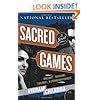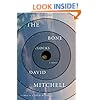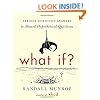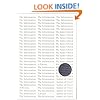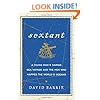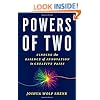



Geek Sublime: The Beauty of Code, the Code of Beauty Paperback – September 2, 2014

Don't have a Kindle? Get your Kindle here, or download a FREE Kindle Reading App.
Step right into Neil Patrick Harris's shoes in an exciting, interactive autobiography that places the reader squarely in the driver's seat. Learn more
Product Details
Would you like to update product info or give feedback on images?.
|
Editorial Reviews
Review
Praise for Geek Sublime:
"An unexpected tour de force. . . . Its ambition: to look deeply, and with great subtlety, into the connections and tensions between the worlds—the cultures—of technology and art. The book becomes an exquisite meditation on aesthetics, and meanwhile it is also part memoir, the story of a young man finding his way from India to the West and back, and from literature to programming and back. . . . Programmers feel an exhilarating creative mastery, and Chandra captures it." —James Gleick, The New York Times Book Review
"Geek Sublime dwells on Chandra's gripping personal narrative . . . as well as his sometimes spiritual exploration of computer language, the ancient Vedas, and the way they share so many traits with fiction. In a sense, it's like Zen and the Art of Software Maintenance. 'The past and present speak to us in languages we refuse to hear,' he proclaims, and it's the book's most succinct statement of intent—not to mention its own well-earned profundity." —NPR
"Chandra weaves a comprehensive understanding of the history, practice and art of programming into a startling fabric. . . . It is a dazzle, from beginning to end. . . . Plenty of programmers consider themselves artists, and plenty of writers presume to declaim about programming. But very, very few can comfortably inhabit both worlds with such grace and precision. . . . There is so much to be fascinated by here." —Salon
“Chandra, brainy, delving, and spellbinding, delineates the intricacy and beauty of code. . . . As [he] illuminates links between programming and literature in bedazzling elucidations of Sanskrit, linguistics, aesthetics, and Hindu, Tantric, and Buddhist beliefs, he also conducts unique and heady inquiries into codes, ethical as well as binary. Chandra’s creative and elegant meshing of thought and experience, conscience and storytelling nets both the profane and the sublime.” —Booklist
About the Author
Customer Reviews
Most Helpful Customer Reviews
I found it to be a beautiful weaving together of computer science, premodern Indian linguistics/aesthetic philosophy, and the author's own experiences with writing, programming, and cross-cultural experiences concerning the US and India. It really resonated with me as someone who comes from a mixed American/Indian cultural background and is also involved with programming, linguistics, and the arts. That said, there was plenty of material which was new to me, and I think the author did a lovely job of explaining those things patiently and clearly (without getting boring when he covered familiar ground).
For example, the book's strongest section details the rigorous grammar underlying classical Sanskrit, and mentions in passing the presence of constructs such as recursion/loops/etc that also appear in formal programming languages. It is certainly interesting to argue that if beauty can be produced (despite? because of?) the rigors of Classical Sanskrit (as the author amply demonstrates), similarly rigorous computer code can also be "beautiful." Unfortunately the interleaved organization of the book prevents the author from really developing this argument, and the code section of the book notably lacks any examples of code or algorithms generally thought to be "beautiful". This dearth of examples fundamentally hinders any attempt to develop a meaningful idea of what "beautiful code" is, beyond not being a big ugly mess, let alone explore in a substantive manner possible connections between the austere beauty of Sanskrit on the one hand and programming languages on the other.
The author's discussion, towards the end of the book, of the difficulty of good writing also seems to be something of a missed opportunity.Read more ›
This is so true!!
The is a well written book where the author links the chapters and veers from his personal expereinces and philosophical works(Ancient indian gurus) to draw parallel with writing. This little mental adventure is based on his two careers: a) A code writer earning a paycheck to support his habit of b) writing.
The one struggle that i had with it was the quotes of the gurus, such as Abnivagupta, were dense to read where i was forced to re-read them and/or reference one or two indian philosophical books to decode what they were trying to say. But, for me the walk away was after finishing the book i am less ignorant of the Indian philosophical traditions. And, an aside to use some of those quotes at a party does wonders especially if you run into a pretentious philosophy student(ex - grad student)
The book hardly explores the invisible architectural beauty of a well written program and does nothing to make such beauty visible to the non-programmer.
To paraphrase H.L. Mencken: We must respect the other fellows culture, but only in the sense and to the extent that we respect his theory that his wife is beautiful and his children smart.
The discussion of Sanskrit is more interesting but also exaggerated. It should too much like claiming that ancient Indians had nuclear power.

